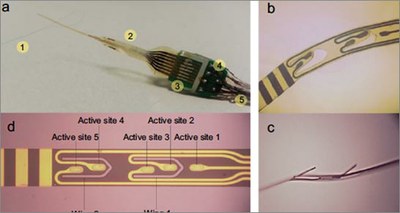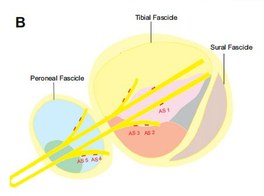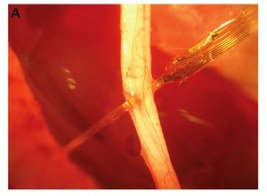Health: New perspectives for treating diabetes with mini 3D electrodes
4/7/2019
 Using innovative mini 3D electrodes to monitor and stimulate pancreatic insulin production in the treatment of certain types of diabetes,. This is the objective of the project EMPATIC (EModulation of PAncreaTic Islet Cells) developed by a group of researchers in robotics, biomedical and neuromorphic engineering from New York University, Universität Zürich, CNR and ENEA as coordinator.
Using innovative mini 3D electrodes to monitor and stimulate pancreatic insulin production in the treatment of certain types of diabetes,. This is the objective of the project EMPATIC (EModulation of PAncreaTic Islet Cells) developed by a group of researchers in robotics, biomedical and neuromorphic engineering from New York University, Universität Zürich, CNR and ENEA as coordinator.
"In Italy, people with type 2 diabetes mellitus are over 3 millions, approximately 5% of the population. With the project EMPATIC we want to improve the quality of life of patients, bringing innovation in the treatment of this disease that mainly affects adults, but is growing among the youngest due to obesity, ” ENEA researcher Silvia Bossi, who coordinates the research activity, explained.
 The project EMPATIC uses neural interfaces for pancreatic neurostimulation in order to regulate its endocrine functions. When an amount of insulin insufficient to metabolize blood sugar is detected, the electrode will act to stimulate the pancreas to produce more. For this project innovative electrodes will be used, previously designed and developed by the team for the stimulation and recording of the peripheral nervous system, for the control of robotic upper limb prostheses. They are flexible, miniaturized and three-dimensional shaped devices, with an anchoring system ensuring greater stability of the electrical contact for recording and stimulating neural activities.
The project EMPATIC uses neural interfaces for pancreatic neurostimulation in order to regulate its endocrine functions. When an amount of insulin insufficient to metabolize blood sugar is detected, the electrode will act to stimulate the pancreas to produce more. For this project innovative electrodes will be used, previously designed and developed by the team for the stimulation and recording of the peripheral nervous system, for the control of robotic upper limb prostheses. They are flexible, miniaturized and three-dimensional shaped devices, with an anchoring system ensuring greater stability of the electrical contact for recording and stimulating neural activities.
 Neural interfaces now find various uses in neuroscientific research, such as in the stimulation of the cerebral cortex to restore visual sensations in blind subjects or to make people with hearing problems perceive sounds. They are also applied in clinical practice, for instance in the treatment of epilepsy, Parkinson's disease or to modulate chronic pain, " the ENEA researcher said.
Neural interfaces now find various uses in neuroscientific research, such as in the stimulation of the cerebral cortex to restore visual sensations in blind subjects or to make people with hearing problems perceive sounds. They are also applied in clinical practice, for instance in the treatment of epilepsy, Parkinson's disease or to modulate chronic pain, " the ENEA researcher said.
The project EMPATIC also won a cash prize offered by Invitalia for the hackathon SuperConnected Robot at RomeCup 2019. “We’ll keep on working on other proposals to find new funding and continue our research for health ”, Silvia Bossi concluded.
For more information please contact:
Silvia Bossi, ENEA – Laboratory of Distributed and Robotic Intelligence for Man and the Environment, silvia.bossi@enea.it
